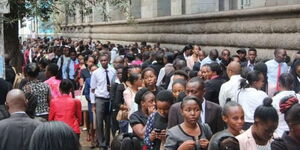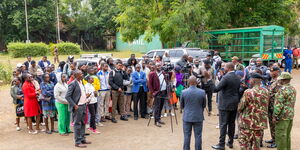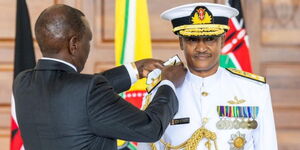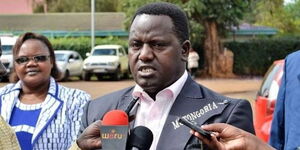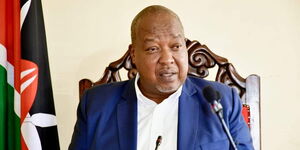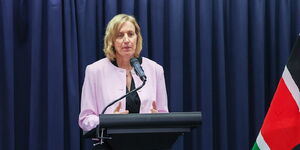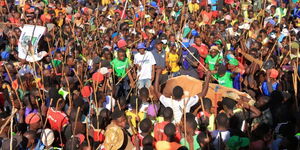When a young Uhuru Kenyatta burst into the political limelight, he was a novice, judging from how he was upset by losing the Gatundu parliamentary election to Moses Mwihia, a little-known Nairobi architect in 1997.
His allies then stated that he was extremely upset and vowed to quit politics to focus on managing his family's businesses.
Contrary to that, in 2022, he went home with his head bowed down and accepted defeat. He was not on the ballot, but his candidate and ‘President’ Raila Odinga was.
Uhuru, nonetheless, handed over power smiling, conscious of the fact that his father, Mzee Jomo Kenyatta, had always predicted that such a time would come. Throughout his political career, Uhuru always reflected on the three lessons the founding father taught him.
"Growing up in the Kenyatta household taught us many things. My father taught us to treat everyone fairly. He taught us the essence of justice and fairness, he told us to learn from history but not to live in history," the former President stated in 2002.
At the time, he was a more refined politician, different from the man who caused a tantrum after losing to Mwihia, who faked his death to make it appear that former President Daniel Moi would stop at nothing to ensure the son of his predecessor won the election.
Essence of Justice and Fairness
After Mzee Daniel arap Moi endorsed him as his preferred successor in 2002, Uhuru campaigned to be Kenya's youngest President.
However, the project was quashed by the famous Kibaki Tosha declaration. Former Prime Minister Raila Odinga endorsed Mwai Kibaki who won by a landslide ending the dreams and hopes of a young Uhuru.
Uhuru conceded defeat in the spirit of justice and fairness, promising to keep the government in check.
Learn From History But Not to Live in History
Uhuru still healing from the 2002 loss, backed Kibaki in his quest to run for a second term in office in the controversial 2007 General Election.
Violence marred the 2007 polls after the Electoral Commission of Kenya (ECK) Chairman Samuel Kivuitu announced Kibaki as the winner.
The late president was hurriedly sworn in at night, with Raila claiming he was rigged out.
Uhuru and President William Ruto (then Eldoret North) were among the leaders indicted at the International Criminal Court (ICC). The duo faced charges against humanity.
However, Uhuru's case was dropped while Ruto's was vacated after the Chamber found that there was 'no case to answer',
In 2013, Uhuru contested for the presidency with Ruto as his running mate. The two leaders put their past behind them, and their partnership formed the next government.
Fast forward to 2017, the former Head of State ran for a second term. Again, Uhuru opted to learn from the previous elections and chose to shake hands with Raila Odinga, who had sworn himself as the people’s president two months earlier.
Uhuru vouched for peace and worked towards unveiling the Building Bridges Initiative (BBI), which was declared null and void. BBI, he said, would have solved the perennial violence witnessed in Kenya after elections.
He, however, like Moi, endorsed Raila who was labelled a state project. Raila lost to Ruto in the August 9 General Election, just as Uhuru did in 2022.
Treat Everyone Fairly
Uhuru initially maintained his silence as Ruto and Raila battled at the Supreme Court, which upheld Ruto's victory.
He, however, put away his differences with Ruto whom he had vehemently opposed before the election, to the point of cutting down his powers and kicking him out of government.
In a pre-recorded address on September 12, Uhuru announced that he would uphold the rule of law and hand over power smiling.
He further welcomed Ruto appointing him as Kenya's special envoy to Ethiopia and DRC.
In his role as an international peacemaker, Jomo Kenyatta's wisdom will always impact his decisions - from treating everyone fairly, reflecting on the essence of justice and fairness, and learning from history but not living in history


